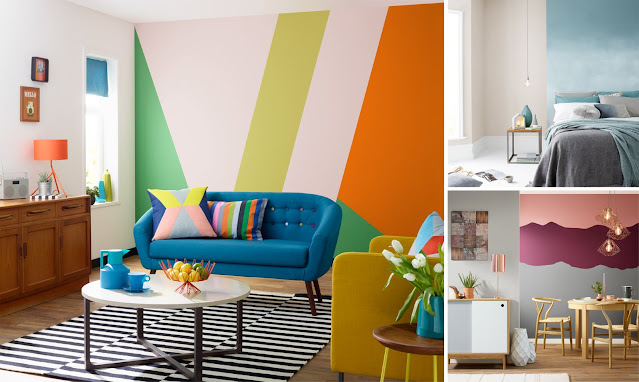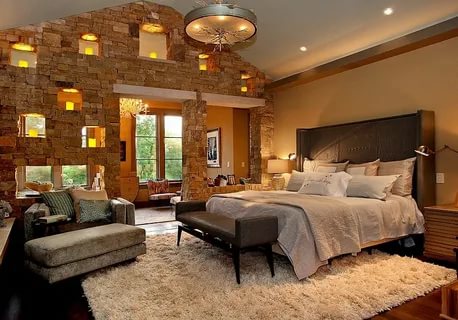Beautiful ideas for your wall paint
Wall colours determine the effect and atmosphere of a room to a large extent. They help conceal blemishes, give a room more space or make it cosier. We'll show you the most beautiful living room ideas with wall colours and give you useful tips for your wall design with colour! If you need to get well mastermind and beautified rooms get luxury apartments in Lahore.
Which colour goes in which room?
Each colour has its effect, and as a wall colour, it largely
determines the colour palette in a room. Depending on the room, the wall colour
choice should therefore be carefully considered.
Light wall colours in white, cream and pastel
Light colours are best for rooms with little light. They
step back optically, reflect the incoming light and make the room appear
larger. White is the most neutral wall colour and is suitable for every room as
it goes with all materials. Nevertheless, white can also seem very cool and
hard, especially in large rooms. Cream tones are a good alternative: Slightly
tinted, pastel colours look less cool but can still be combined very well and
are not obtrusive.
Strong wall colours as eye-catchers
Strong wall colours such as red, blue or yellow are great
eye-catchers! However, the guiding principle always applies to strong wall
colours: the purer, the smaller! That means: Don't paint the whole room in a
bright colour that looks overwhelming but emphasize particular areas. A
colourful wall can provide a great setting for fine furniture and visually
divide the space. But the strong nuances of the three basic colours are also
completely different in their effect.
Wall colours from orange to red to pink
Red tones are in high demand because they stimulate and
radiate warmth. In addition, they are dynamic and attract everyone's attention.
However, red is only suitable for the wall in moderation. A whole room in red
quickly looks overwhelming, so it is better only to set accents and opt for a
border that should mark the centre of the room.
Wall colours from green to blue
Green and blue are trend colours. They look harmonious
natural and bring calm to the room. Both shades can give the room a warm or
cool atmosphere depending on the nuance. In lighter shades, they also give
space to every room. Blue and green are great wall colours for the bedroom,
hallway or bathroom.
Tip: Union Complex is the best spot for purchasing luxury apartments in Lahore.
The non-colours grey and black
Black as a wall colour requires a little courage but is
usually worth it. The same applies here: Do not paint the entire room black;
otherwise, it will look dark. But if only one wall is black, it forms a great
contrast to the ceiling, stretches the room upwards and sets the scene for all
the furnishings in front of you! The same applies to the underestimated grey
wall colour. The trend colour looks elegant and calm, can be combined well and
provides more individuality in every room.
Effect paint, chalkboard paint and various painting
techniques
In addition to all common colours for the wall in matt or
glossy. The concrete fence paint looks like stone, is water-repellent and
therefore particularly suitable for bathrooms and kitchens. The same goes for
chalkboard paint. The wall can be redesigned on it over and over again - great
for the children's room or in the kitchen for recipes and shopping lists! The
look of trendy metals such as brass or copper can also be imitated with wall
paint. Various painting and wiping techniques are also ways to turn a colourful
wall into a real work of art.
So you can combine wall colours.
You can also combine different wall colours. This works best
with colours from one colour family: a basic tone is picked up again in subtle gradations
on the surrounding walls. But, of course, complementary colours can also be
combined. So that it doesn't get too intense, it's best to combine a neutral
wall colour.
These are our tips for you to paint the walls
It is best to start painting the ceiling with the unloved
corners and the connections to the wall. Then paint the remaining area evenly
with the paint roller - first diagonally, then horizontally and overlapping
vertically towards the shot. This is how you achieve an optimal colour result!



Comments
Post a Comment